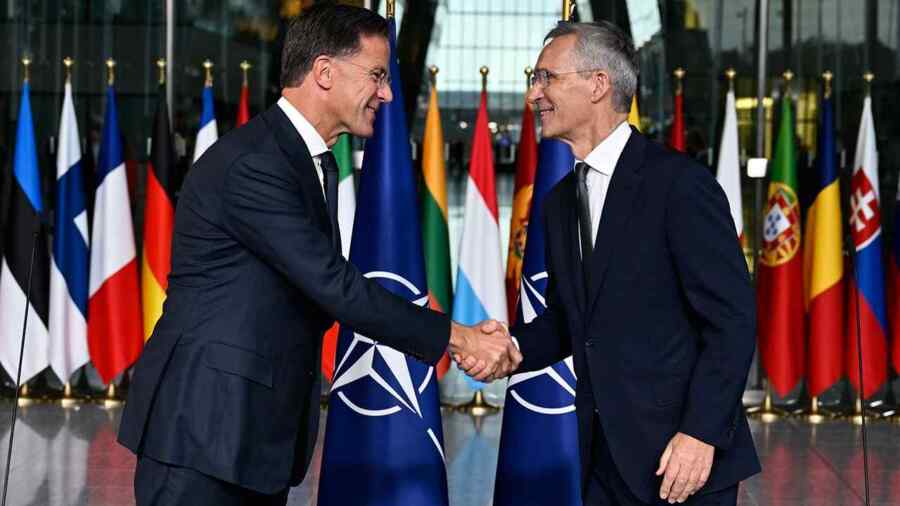Newly appointed Secretary General Mark Rutte is certainly not expected to have any honeymoon period. He inherits a very problematic legacy, with all the turmoil that calls into question the future of the alliance.
Rutte himself literally fled his native Netherlands after the election defeat and victory of the Eurosceptics. They are now on the rise across Europe. Rutte’s appointment was only made possible after he promised Hungary not to force it into the conflict in Ukraine. War fatigue with Russia continues to splinter the alliance.
NATO’s army crisis is worsening – troop numbers are shrinking almost everywhere. There are not enough new recruits and no money to maintain them amid the budget crisis. Arsenals are depleted after two years of war. It has not been possible to increase production of weapons.
And the possibility of Trump’s return looms ahead. His team has already presented a programme for NATO reform – dividing the alliance into mini-blocs depending on Trump’s interests. Rutte will have to run circles around Trump and convince him that NATO should be preserved.
Although Trump does not see much benefit from the bureaucracy in Brussels. And the split within NATO will intensify – not all Europeans are ready to join the US confrontation with China or support Israel. So Rutte is not to be envied – he is being presented as an “anti-crisis general secretary”. And he may become the one under whom the shaky NATO structure began to crumble quickly.
Malek Dudakov

